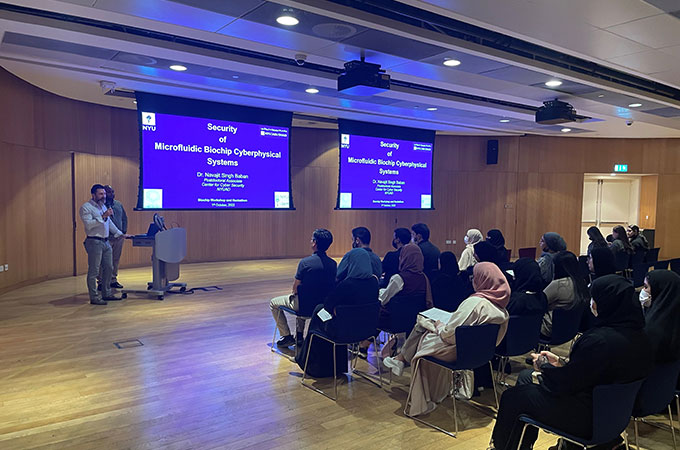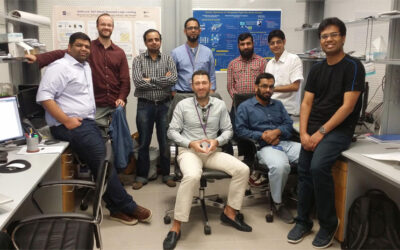Establishing a World Class Cyber Security Center
Our vision is to establish a world class cyber security center by partnering with key local universities, industry and government agencies in order to facilitate cyber security research, education and practice in the UAE and more generally in the GCC region. The center will act as a catalyst to improve cyber security in the UAE and enhance its regional and global competitiveness in this field.
The Center for Cyber Security is affiliated with CCS New York.
Events
The Center for Cyber Security hosts events throughout the year to increase cyber security awareness.

CSAW'24
Cyber Games & Conference
November 6-9, 2024
CSAW [see-SAH] is the most comprehensive student-run cyber security event in the world, featuring 10 hacking competitions, workshops, and industry events. CSAW’24 marks the 11th anniversary of CSAW MENA (Middle East North Africa) organized by NYU Abu Dhabi.

Biochip Workshop and Hackathon
Hackathon & Workshop
October 1st – 2nd, 2022
The NYUAD Center for Cyber Security and Engineering, together hosted a first-ever microfluidic workshop and hackathon with the help of NYUAD iGEM team. The workshop included hands-on practice on a commercial microfluidic biochip, which were used for RT-PCR COVID-19…

CSAW'23
Cyber Games & Conference
November 8-11, 2023
CSAW [see-SAH] is the most comprehensive student-run cyber security event in the world, featuring 10 hacking competitions, workshops, and industry events. CSAW’23 marks the 10th anniversary of CSAW MENA (Middle East North Africa) organized by NYU Abu Dhabi.
Spotlight & Latest News
Read the latest news, features and highlights from the CCS-AD.
Our paper has received the 2020 Best Paper Award for IEEE Transactions on Emerging Topics in Computing
Prof. Ozgur Sinanoglu and his team have won the IEEE Transactions on Emerging Topics in Computing Best Paper Award. M. Yasin, B. Mazumdar, O. Sinanoglu and J. Rajendran, "Removal Attacks on...
TinyML Talks: Energy-Efficiency and Security for TinyML and EdgeAI: A Cross-Layer Approach
Talk by Prof. Muhammad Shafique Modern Machine Learning (ML) approaches like Deep Neural Networks (DNNs) have shown tremendous improvement over the past...
Graph Neural Networks (GNNs)
Graph Neural Networks (GNNs) have shown great success in learning on graph-structured data, such as social networks, recommendation systems, and...

